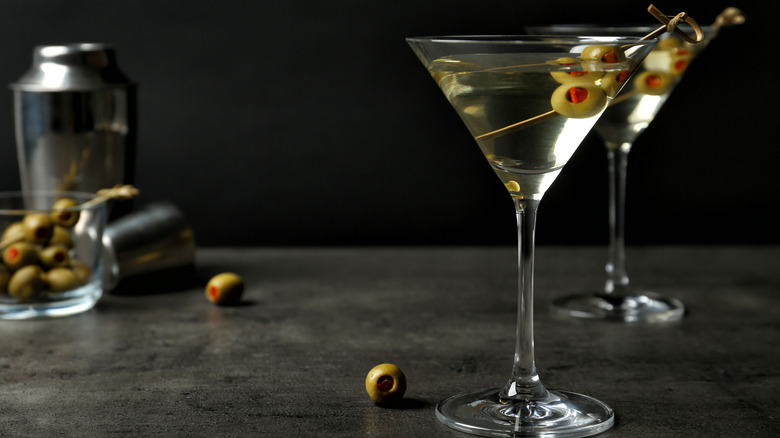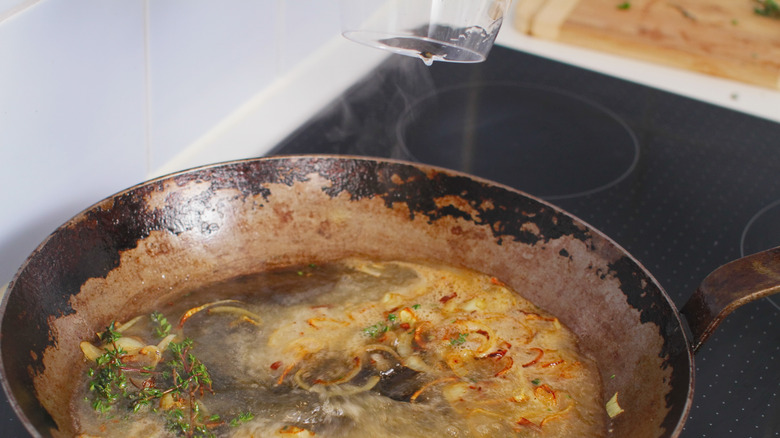When Deglazing Your Cast Iron Pan, Take Inspiration From Martinis
Alcohol may be meant for drinking, but sipping is so last season when it comes to martinis — well, not entirely. While we're still obsessed with savoring the classic cocktail, we also recognize that it has so much potential within a culinary scope. Given that we're no strangers to adding a splash of Campari to salad dressing, why not put all the elements of a good martini into a pan sauce?
Deglazing is a way to make good use of the caramelized bits stuck to the bottom of a pan during searing and sautéing. Although any liquid can be poured into a hot pan to dislodge all that flavorful cooking residue, alcohol tends to be a popular choice. Since it easily bonds with water and fat molecules in other ingredients, it can cling to aromas and flavors more effectively than other liquids, which makes for a more complex pan sauce.
Regardless of the fact that wine may be a popular choice for deglazing, that doesn't mean that fortified beverages or spirits can't be used. In fact, anything that you find pleasant to sip can be worked into a pan sauce. That said, often it's best to match darker spirits with darker proteins, and lighter spirits with lighter meats. So long as you remember that a little goes a long way, these rules need not be taken so seriously, which is exactly why you are completely free to toss all the boozy elements of a martini into a sizzling hot pan.
Deglazing with gin and vermouth adds a botanical dimension to sauces
From dry to espresso, all sorts of martini variations exist. However, a vodka martini or gin martini is probably the best source of inspiration when crafting a cocktail-esque pan sauce. While vodka can be an excellent vessel for flavors, gin can instead impart a bit of herbaceousness, whereas vermouth adds a floral quality and a dash of sweetness. Of course, a dirty (or even filthy) martini can make a pan sauce more interesting by delivering a punch of salinity.
Before you reach for your spirits of choice — vodka and vermouth, or gin and vermouth — make sure that the cast iron used to deglaze is well-seasoned, as this will prevent a metallic-tasting sauce. Once meat and aromatics have been seared, The Washington Post recommends pouring in two parts gin (or vodka) and one part vermouth, scraping off the browned bits on the bottom of the pan, before letting liquids reduce and adding in a pat of butter and some citrus to bring the sauce together.
Velvety and rich, the spirits give the sauce an herbal freshness with vibrant, citrusy nuances that prove shockingly delicious. Perfect for drizzling over meat, the luscious dressing can also make a great base for pasta sauce. Whether you're a martini lover or not, deglazing with the cocktail's key components is a fantastic way to add layers of depth in a creative way!

